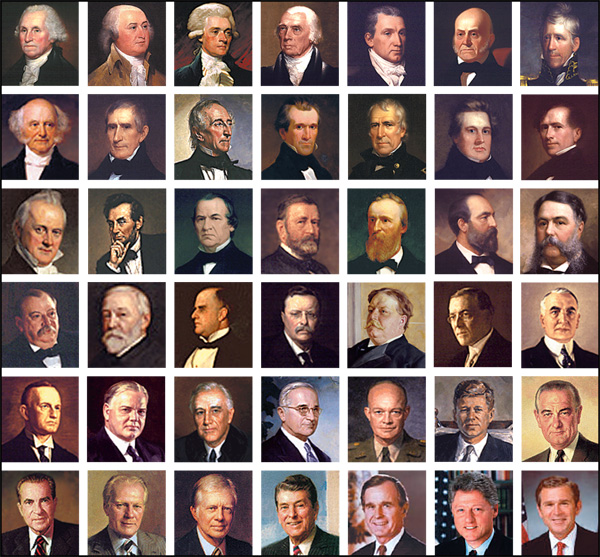The role of presidents in shaping a nation is profound and multifaceted. Presidents are the head of state and government, overseeing the administration and functioning of a country. In this article, we will explore the responsibilities, challenges, and historical significance of presidents across various nations. From executive powers to diplomatic relations, understanding the intricacies of presidential duties is essential for grasping how leaders influence both domestic and international landscapes.
Presidents serve as pivotal figures who embody national identity and values. They are often the face of the government, making decisions that can affect millions of lives. The impact of their policies, leadership style, and decision-making processes can lead to significant changes within a country's political, social, and economic framework.
This comprehensive guide will delve into the various aspects of a president's role, including their powers, the electoral process, and the historical context that shapes their leadership. By understanding the complexities of presidential duties, we can better appreciate the significance of their contributions to society.
Table of Contents
- The Role of Presidents
- Presidential Powers and Responsibilities
- The Electoral Process
- Historical Context of Presidential Leadership
- Challenges Faced by Presidents
- Impact on Society and Governance
- Case Studies of Notable Presidents
- Conclusion
The Role of Presidents
Presidents are central figures in the governance of their countries, holding significant authority and influence. Their primary role includes:
- Leading the executive branch of government
- Implementing laws and policies
- Representing the nation in diplomatic matters
- Serving as the commander-in-chief of the armed forces
- Appointing government officials and judges
Symbol of National Unity
Presidents often serve as symbols of national unity, embodying the hopes and aspirations of their citizens. Their leadership style can foster a sense of belonging and pride among the population.
Presidential Powers and Responsibilities
Presidents wield a variety of powers that are crucial for effective governance. These powers can vary significantly depending on the country and its constitution.
Executive Powers
Presidents typically have the authority to:
- Veto legislation
- Issue executive orders
- Negotiate treaties with foreign nations
- Grant pardons and reprieves
Legislative Role
In addition to their executive powers, presidents often play a significant role in the legislative process by:
- Proposing new laws and budgets
- Working with legislators to promote their policy agendas
- Addressing the nation on important issues
The Electoral Process
The process of electing a president varies across different countries. In democratic nations, elections are typically held every few years, allowing citizens to choose their leader.
Election Campaigns
Presidential campaigns are often intense and competitive, involving:
- Public debates and forums
- Fundraising and advertising
- Grassroots mobilization efforts
Voting Systems
The voting system used to elect presidents can impact the outcome. Common systems include:
- First-past-the-post
- Ranked-choice voting
- Electoral college systems
Historical Context of Presidential Leadership
Understanding the historical context of presidential leadership is essential for interpreting their actions and decisions. Historical events can shape the priorities and challenges faced by presidents.
Influence of Past Leaders
Past presidents can set precedents that influence future leaders. For example:
- The New Deal policies of Franklin D. Roosevelt
- The civil rights initiatives of Lyndon B. Johnson
- The foreign policy strategies of George Washington
Evolution of Presidential Roles
The role of presidents has evolved over time, influenced by factors such as:
- Changes in political ideologies
- Technological advancements
- Globalization and international relations
Challenges Faced by Presidents
Presidents encounter numerous challenges during their tenure, including:
- Political opposition and partisan divides
- Economic crises and budget constraints
- International conflicts and diplomatic tensions
Public Opinion and Media Scrutiny
Presidents must navigate public opinion and media scrutiny, which can significantly impact their effectiveness and legacy. Engaging with the media and addressing public concerns is crucial for maintaining support.
Impact on Society and Governance
The decisions made by presidents can have lasting effects on society and governance. This impact can be observed in various areas:
Economic Policies
Presidential economic policies can influence:
- Job creation and unemployment rates
- Tax structures and public spending
- Trade agreements and international relations
Social Change
Presidents can also drive social change by:
- Promoting civil rights and equality
- Addressing healthcare and education reforms
- Advocating for environmental protections
Case Studies of Notable Presidents
To illustrate the points discussed, we will examine the leadership styles and impacts of several notable presidents:
Abraham Lincoln
Lincoln is renowned for his leadership during the Civil War and his efforts to abolish slavery.
Franklin D. Roosevelt
Roosevelt's New Deal policies transformed the American economy during the Great Depression.
Nelson Mandela
Mandela's presidency marked a significant transition towards democracy in South Africa.
Conclusion
In conclusion, the role of presidents is complex and multifaceted, encompassing a wide range of responsibilities and challenges. Their decisions can have significant implications for their nations and the world. Understanding the intricacies of presidential leadership allows us to appreciate the importance of these figures in shaping our society. We invite you to share your thoughts on this article and explore more content on our site.
Thank you for reading! We hope you found this article informative and engaging. Feel free to leave comments or share it with others who may be interested in learning more about presidential roles and their impact on society.




